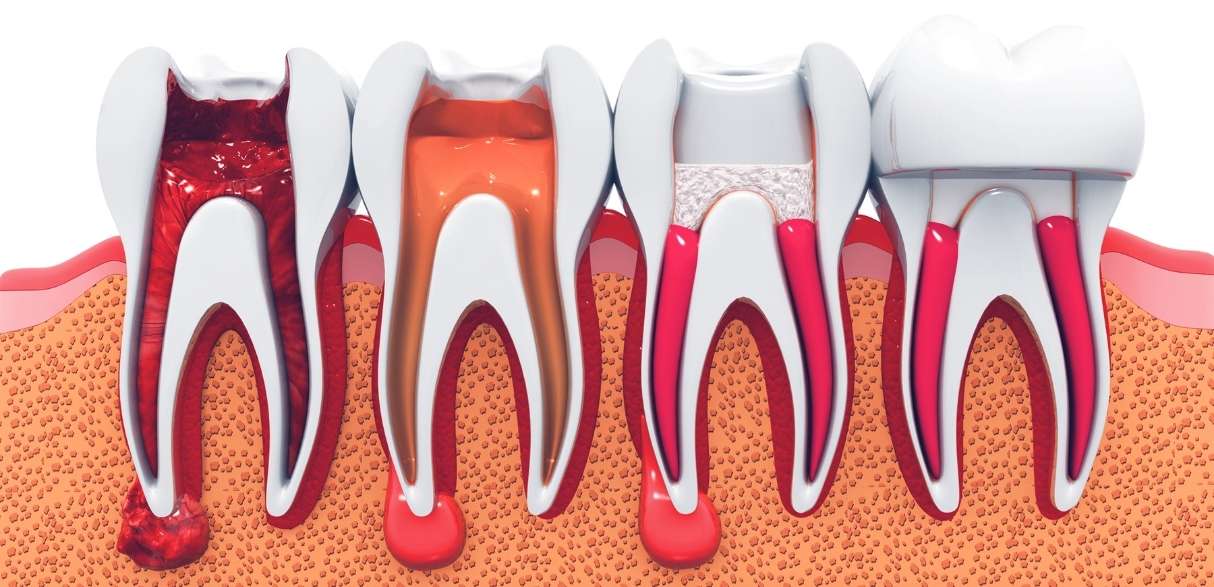
Best Food to Eat After Root Canal Treatment: A Comprehensive Guide

Undergoing a root canal treatment can be a daunting experience for many people. It’s a procedure designed to save a severely damaged or infected tooth, but the recovery process requires careful attention to avoid complications and ensure optimal healing. One crucial aspect of this recovery is your diet. Knowing what foods to eat after a root canal can help minimize discomfort, prevent infection, and promote faster healing. In this comprehensive guide, we’ll explore the best foods to eat after a root canal treatment and why they are beneficial.
Understanding Root Canal Treatment
What Is a Root Canal?
A root canal is a dental procedure aimed at treating infection or damage within the tooth’s pulp, which is the innermost part containing nerves and blood vessels. The procedure involves removing the infected or damaged pulp, cleaning and disinfecting the inside of the tooth, and then filling and sealing it. While the treatment can alleviate pain and save the tooth, the recovery period can involve some discomfort and sensitivity.
Post-Treatment Care
After a root canal, it’s essential to follow your dentist’s instructions to ensure proper healing. This includes taking prescribed medications, maintaining good oral hygiene, and paying special attention to your diet. Eating the right foods can significantly impact your recovery, helping to reduce pain, swelling, and the risk of complications.

Best Foods to Eat After Root Canal Treatment
1. Soft Foods
Soft foods are the cornerstone of a post-root canal diet. They are easy to chew and swallow, reducing the risk of irritating the treated area. Some great soft food options include:
- Mashed Potatoes: Creamy and smooth, mashed potatoes are gentle on the teeth and provide essential nutrients.
- Yogurt: Rich in probiotics, yogurt can help promote a healthy balance of bacteria in the mouth, aiding in the healing process.
- Scrambled Eggs: Soft and protein-rich scrambled eggs are an excellent choice for maintaining energy levels without causing discomfort.
- Oatmeal: Warm, soft, and easy to customize with different toppings, oatmeal is a nutritious option that can be gentle on sensitive teeth.
2. Cool and Lukewarm Foods
Foods that are cool or lukewarm can help soothe the treated area and reduce inflammation. Avoid hot foods, as they can increase sensitivity and discomfort. Some suitable options include:
- Applesauce: Smooth and cool, applesauce is easy to eat and can be soothing for the mouth.
- Pudding: Soft and cool, pudding provides a comforting and gentle option for a post-treatment snack.
- Smoothies: Blended fruits and vegetables can be consumed as a cool smoothie, offering essential vitamins and minerals without causing irritation. Avoid seeds or nuts that could get lodged in the treated area.
- Ice Cream: While not overly nutritious, a small amount of ice cream can provide temporary relief and a comforting treat. Choose non-dairy options if you are sensitive to dairy.
3. Nutrient-Dense Foods
Consuming nutrient-dense foods is vital for supporting your body’s healing process. These foods provide essential vitamins and minerals that can aid in tissue repair and reduce inflammation. Some nutrient-dense options include:
- Avocado: Soft and rich in healthy fats, avocados are gentle on the teeth and provide a good source of vitamins and minerals.
- Bananas: Soft and easy to chew, bananas are high in potassium and other essential nutrients.
- Steamed Vegetables: Vegetables like carrots, broccoli, and spinach can be steamed until very soft, providing important vitamins and minerals while being easy to eat.
- Bone Broth: Rich in nutrients and easy to consume, bone broth can help promote healing and provide hydration.
4. Hydrating Foods and Liquids
Staying hydrated is crucial for overall health and recovery after a root canal. Consuming hydrating foods and liquids can help maintain moisture in the mouth, reduce inflammation, and support the healing process. Some hydrating options include:
- Water: Drink plenty of water throughout the day to stay hydrated and help flush out any bacteria from the mouth.
- Herbal Teas: Lukewarm herbal teas can be soothing and hydrating without the risk of irritation from caffeine or sugar.
- Coconut Water: Rich in electrolytes, coconut water can help keep you hydrated and provide essential nutrients.
- Soup: Broth-based soups are hydrating and easy to consume, providing nutrients without causing discomfort.
5. Protein-Rich Foods
Protein is essential for tissue repair and recovery. Including protein-rich foods in your diet can help support the healing process and maintain your energy levels. Some suitable options include:
- Soft Tofu: Soft tofu is high in protein and easy to eat, so it is a great plant-based option for post-root canal recovery.
- Smooth Nut Butter: Peanut butter, almond butter, and other nut butter provide protein and healthy fats. Opt for smooth varieties to avoid any irritation.
- Cottage Cheese: Soft and rich in protein, cottage cheese is easy to consume and can be mixed with soft fruits for added flavor.
- Fish: Soft, flaky fish like salmon or cod can be a gentle source of protein. Ensure it is cooked until it is very tender.
Foods to Avoid After Root Canal Treatment
1. Hard and Crunchy Foods
Hard and crunchy foods can irritate the treated area, cause discomfort, and even damage the temporary filling or crown. Avoid foods such as:
- Nuts: Hard and crunchy, nuts can be difficult to chew and may cause irritation.
- Chips: Crunchy and hard, chips can be abrasive and uncomfortable to eat.
- Raw Vegetables: While healthy, raw vegetables like carrots and celery can be too hard to chew comfortably.
2. Sticky and Chewy Foods
Sticky and chewy foods can adhere to the treated area, potentially dislodging the temporary filling or crown. Avoid foods such as:
- Caramel: Sticky and chewy, caramel can get stuck in the treated area and cause discomfort.
- Gum: Chewing gum can be difficult to manage and may dislodge the filling or crown.
- Toffees: Chewy and sticky, toffees can cause irritation and potentially damage the treated tooth.
3. Spicy and Acidic Foods
Spicy and acidic foods can increase sensitivity and cause irritation in the treated area. Avoid foods such as:
- Citrus Fruits: Acidic fruits like oranges, lemons, and grapefruits can cause discomfort.
- Spicy Peppers: Spicy foods can increase sensitivity and cause irritation in the treated area.
- Tomato Sauce: Acidic and potentially irritating, tomato sauce should be avoided until the area has healed.
4. Hot Foods and Beverages
Hot foods and beverages can increase sensitivity and cause discomfort in the treated area. Avoid foods and drinks such as:
- Hot Coffee: The heat can cause discomfort and increase sensitivity.
- Hot Soup: While soup is generally a good option, ensure it is lukewarm rather than hot.
- Hot Tea: Choose lukewarm herbal teas instead of hot ones to avoid irritation.
Tips for Eating After Root Canal Treatment
1. Chew on the Opposite Side
To minimize discomfort and avoid irritating the treated area, try to chew on the opposite side of your mouth. This can help prevent any undue pressure on the treated tooth and allow it to heal properly.
2. Take Small Bites
Taking small bites and eating slowly can help you manage any discomfort and avoid putting too much pressure on the treated area. This approach can also help you better enjoy your meals and ensure proper digestion.
3. Avoid Using a Straw
Using a straw can create suction in the mouth, which may dislodge the temporary filling or crown. Instead, drink directly from a cup to minimize the risk of complications.
4. Maintain Good Oral Hygiene
Keeping your mouth clean is crucial for preventing infection and promoting healing. Gently brush your teeth twice a day, being careful around the treated area. Rinse with a saltwater solution or an antibacterial mouthwash as recommended by your dentist.
5. Follow Your Dentist’s Instructions
Always follow your dentist’s post-treatment instructions carefully. They may provide specific guidelines on what to eat and what to avoid, as well as how to care for the treated area to ensure optimal healing.
A root canal treatment can be a significant dental procedure, but with proper care and attention, you can ensure a smooth and comfortable recovery. Choosing the right foods to eat after a root canal is essential for minimizing discomfort, preventing complications, and promoting healing. Focus on soft, nutrient-dense, and hydrating foods while avoiding hard, sticky, spicy, and hot foods. By following these guidelines and your dentist’s instructions, you’ll be well on your way to a speedy recovery and maintaining your dental health.








